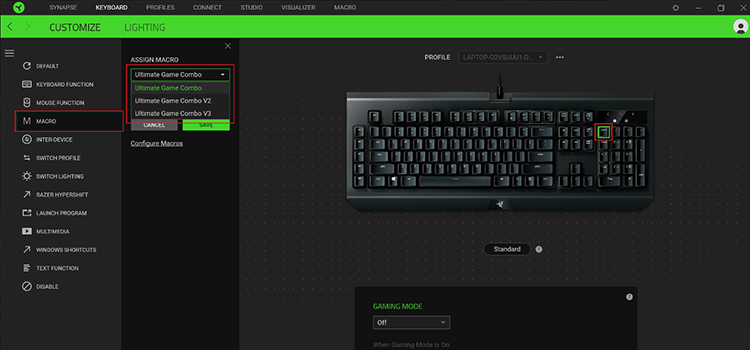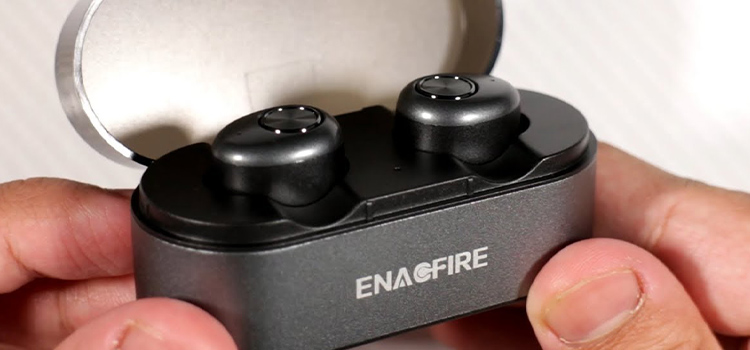Does a Motherboard Affect FPS? | Everything You Need to Know
Suppose you were playing games on your high-end gaming PC and suddenly faced issues like FPS drop. As you’re using high-end components, you may wonder why are you facing such issues, does the motherboard affect FPS?
The answer is a little bit complicated. Because the motherboard doesn’t directly affect the FPS. However, the quality of a motherboard can indirectly impact the FPS.
For example, if the quality of the motherboard is low, it may not be able to handle the data that is sent from the CPU to the GPU properly. As a result, you’ll end up with a lower FPS.
In this article, we’ve provided a better idea about how FPS is affected by a motherboard and all the related factors. So, without further talk, let’s get started.

All You Need to Know About Frame Rate (FPS)
Before determining whether a motherboard affects FPS or not, you need to know some factors of the FPS. If you’re a gamer, you’re already familiar with It. But still, let’s go through the basics about it.
Frames Per Second or FPS is also known as the ‘Brust Rate’ or the ‘Update Rate’. It indicates how many frames change on the screen of a display in a set of 1 second time.

Mostly, a 30 to 60 FPS is considered the standard FPS. If the FPS goes below this level, you may encounter laggy or choppy gameplay.
Many think that the more hardware power, the more FPS; which is technically wrong. Yes, powerful components can indeed result in more FPS but if you really want to get better FPS, then you need a monitor with a higher refresh rate.
Now, let’s talk about how a motherboard affects FPS.
Does a Motherboard Really Affect FPS? – Motherboard Facts That Affect FPS
You already know that all data transferring processes among the hardware are done through the motherboard of a computer.
So, if you are using high-quality components on a low-quality motherboard, it can’t manage those data-transferring processes efficiently which results in lower FPS. Again, if the components are lower in quality and are being used in a high-end motherboard, you may also notice lower FPS.
That’s why motherboards don’t have any direct impact on the FPS but as it is connected to the components that impact FPS, a motherboard indirectly affects the FPS.
Let’s discuss which factors of a motherboard affect FPS and how.
1. How FPS is Affected by CPU & Motherboard

FPS massively depends on the CPU (Central Processing Unit) because it authorizes the GPU to display the video or picture on the screen. FPS can be increased by overclocking the CPU. However, it completely depends on the type of motherboard that how far you can overclock your CPU.
So basically, FPS is directly affected by the CPU but indirectly it is also affected by the type of the motherboard.
2. How FPS is Affected by GPU & Motherboard

The GPU (Graphics Processing Unit) also known as the “video card” or the “graphics card”, is the main component to accelerate the creation and rendering of animation, video, and pictures. So, FPS is directly affected by the GPU.
The capacity of a GPU depends on the quality of the PCIe ports of a motherboard. If the motherboard has 4.0 or 3.0 then it can allow an 8 GHz graphics card which can provide higher FPS. But if it is 2.0 (5 GHz) then the FPS may decrease.
So, you not only need a better GPU but also need a motherboard with the latest version of PCIe slots for better FPS. Also, a weaker CPU can bottleneck with a powerful GPU and as a result, it will decrease the FPS.
3. How FPS is Affected by BIOS of a Motherboard

The BIOS of a motherboard doesn’t directly affect the FPS but as the functionalities of the components depend on the BIOS and FPS depends on the functionalities of those components, the motherboard’s bios also indirectly affect the FPS.
So, in order to get better FPS, you need to keep the BIOS of your motherboard up to date.
Test Result of Two High-End Motherboards to Detect a Motherboard’s Impact on FPS
Let’s compare two different motherboards with the same components to identify the difference in FPS.
In this test, we’ve used Gigabyte X470 Aorus Gaming 7 and the Gigabyte X570 Aorus Ultra motherboards and technically, the Gigabyte X570 is better than the X470 motherboard. The components used for this test are –
- CPU: Ryzen 7 3700X
- GPU: RTX 2080 Super
- RAM: Corsair Vengeance RGB Pro Series 4*8GB DDR4 RAM (3600MHz)
- Display Resolution: 1080p
Here is the table with the Benchmark results of FPS in different games for these two motherboards.
| Game Name | X470 (Average FPS-Minimum FPS) | X570 (Average FPS-Minimum FPS) |
| Resident Evil 2 | 104-142 (1080P) | 108-141(1080P) |
| Battlefield 5 | 154-181(1080P) | 156-182(1080P) |
| Witcher 3: Wild Hunt | 150-179(1080P) | 148-178(1080P) |
| Devil May Cry 5 | 170-198(1080P) | 171-200(1080P) |
| Metro Exodus | 105-132(1080P) | 105-131(1080P) |
| Apex Legends | 154-181(1080P) | 155-181(1080P) |
Check the below video to identify the FPS in more detail.
FAQs – Frequently Asked Questions
Does Motherboard Affect Performance?
The accurate answer to the question is – It depends. If you’re using low to middle-tier components such as CPU, GPU, etc. then a low-end motherboard won’t affect the performance. But if the components are high-end, then you also need a higher-class motherboard or it will bottleneck your entire system.
Will a Motherboard Affect Gaming Performance?
The simple answer to this question is – no, a motherboard won’t affect your gaming performance. The gaming performance of a PC mainly depends on CPU, GPU, and RAM. If they aren’t higher-end, then you may face several problems such as lagging, screen-tearing, lower FPS, etc. while playing games.
Does Changing Motherboard Increase FPS?
The answer to this question is – it depends. If you have high-end components but a cheap motherboard, then changing the motherboard will surely increase the FPS. But if you have low-end or mid-tier components, then only changing the motherboard isn’t enough.
Why Is My High-End PC Low FPS?
FPS depends on the hardware of a PC. If you’re using high-end hardware, then you need to ensure a high-end motherboard also for providing efficient support to that hardware. Otherwise, your FPS will remain low.
Conclusion
All the factors and relations between the motherboard and FPS are described in this article and we hope, you’re pretty clear now about whether a motherboard affects FPS or not. Though motherboards can’t affect the FPS directly, in a roundabout way, they actually can. So, if you have a good budget, we’d suggest you get high-end MOBOs. Hope you’ve found this guide helpful. Thanks for reading.
Subscribe to our newsletter
& plug into
the world of technology





